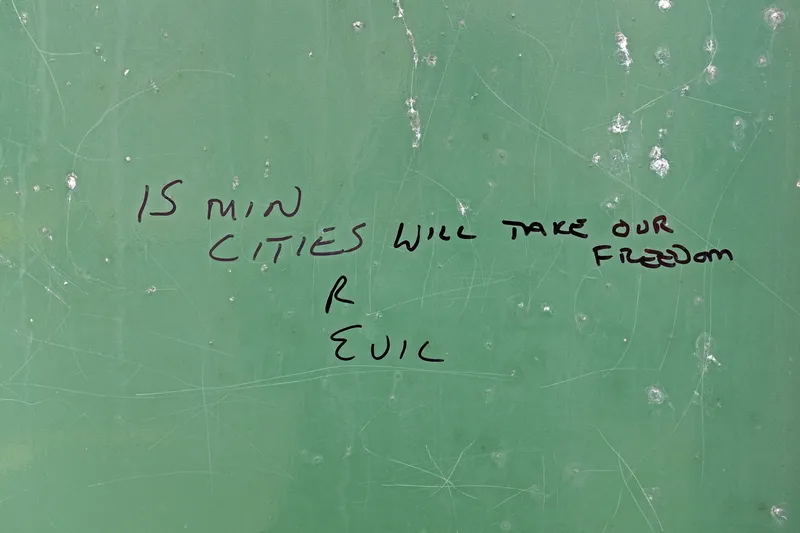Expert psychologists have concluded that multi-tasking whilst driving is a myth – and the most dangerous of those driving multi-tasks is texting and talking on a mobile phone, according to a new report produced by the Institute of Advanced Motorists (IAM) and the Transport Research Laboratory (TRL).
The research focuses on the dangers involved when drivers try and engage in more than one task, indicating this can have a ‘detrimental’ effect on the quality and accuracy of driving performance.
The find
November 20, 2015
Read time: 3 mins
Expert psychologists have concluded that multi-tasking whilst driving is a myth – and the most dangerous of those driving multi-tasks is texting and talking on a mobile phone, according to a new report produced by the Institute of Advanced Motorists (IAM) and the Transport Research Laboratory (491 TRL).
The research focuses on the dangers involved when drivers try and engage in more than one task, indicating this can have a ‘detrimental’ effect on the quality and accuracy of driving performance.
The findings come from a report launched this week titled ‘The battle for attention’, jointly produced by TRL researchers Dr Neale Kinnear and Dr Alan Stevens, and the IAM’s director of policy and research Neil Greig.
Dr Kinnear, a senior psychologist in the study of human behaviour and transport, and Dr Stevens, chief scientist and research director with internationally recognised expertise in human-machine interaction, both reviewed existing research behind in-car distractions to understand the various cognitive processes and complexities in driving.
They said texting engages three of the five key areas of distraction to a ‘high’ level – cognitive, visual and manual. A mobile phone conversation also engages three of five areas of distraction to a ‘high’ level – cognitive, audible and exposure time.
Figures from the1837 Department for Transport (DfT) in 2013 found 2,995 cases where distraction in the vehicle was listed as a contributory factor to accidents. A further 1,627 cases were listed where distraction outside the vehicle was a contributory factor.
The report says: “Research has confirmed that tasks almost always interfere with other tasks carried out at the same time. The brain never actually focuses on two tasks at the same time – it switches back and forward between them.
“As driving is so complex and requires various cognitive processes, taking on another task when driving can mean a driver is unable to pay sufficient attention to all the activities required for safe driving. This can lead to a processing failure resulting in a loss of control, putting the driver and other road users in physical danger.”
Sarah Sillars, IAM’s chief executive officer, said: “This is proof, should it be needed, that multi-tasking and driving simply don’t mix. Whilst there are plenty of distractions to tempt the driver, the individual needs to know that the phone, or internet, or the iPod simply don’t matter – driving is the only activity that should occupy your mind while at the wheel.
“It’s important that we work with the government, car makers and educators to deliver a renewed focus on driver training and road safety – and that people know that distractions can be fatal.”
The research focuses on the dangers involved when drivers try and engage in more than one task, indicating this can have a ‘detrimental’ effect on the quality and accuracy of driving performance.
The findings come from a report launched this week titled ‘The battle for attention’, jointly produced by TRL researchers Dr Neale Kinnear and Dr Alan Stevens, and the IAM’s director of policy and research Neil Greig.
Dr Kinnear, a senior psychologist in the study of human behaviour and transport, and Dr Stevens, chief scientist and research director with internationally recognised expertise in human-machine interaction, both reviewed existing research behind in-car distractions to understand the various cognitive processes and complexities in driving.
They said texting engages three of the five key areas of distraction to a ‘high’ level – cognitive, visual and manual. A mobile phone conversation also engages three of five areas of distraction to a ‘high’ level – cognitive, audible and exposure time.
Figures from the
The report says: “Research has confirmed that tasks almost always interfere with other tasks carried out at the same time. The brain never actually focuses on two tasks at the same time – it switches back and forward between them.
“As driving is so complex and requires various cognitive processes, taking on another task when driving can mean a driver is unable to pay sufficient attention to all the activities required for safe driving. This can lead to a processing failure resulting in a loss of control, putting the driver and other road users in physical danger.”
Sarah Sillars, IAM’s chief executive officer, said: “This is proof, should it be needed, that multi-tasking and driving simply don’t mix. Whilst there are plenty of distractions to tempt the driver, the individual needs to know that the phone, or internet, or the iPod simply don’t matter – driving is the only activity that should occupy your mind while at the wheel.
“It’s important that we work with the government, car makers and educators to deliver a renewed focus on driver training and road safety – and that people know that distractions can be fatal.”








